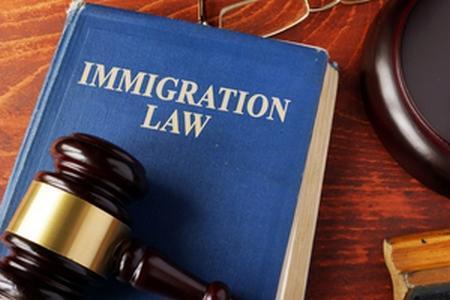When Can Immigrants Receive Waivers of Inadmissibility?
 For immigrants who are seeking entry to the United States or those who currently live in the U.S. and wish to obtain an adjustment of status and become lawful permanent residents, there are certain issues that may affect this process. U.S. immigration laws include multiple “grounds for inadmissibility” that may affect an immigrant’s legal status or prevent them from entering or remaining in the United States. However, there are some cases where immigrants may be able to obtain waivers of inadmissibility. By understanding when these waivers may be available and the procedures to follow when applying for a waiver, immigrants and their family members can make sure they are taking the correct steps to overcome any issues that may affect the immigration process.
For immigrants who are seeking entry to the United States or those who currently live in the U.S. and wish to obtain an adjustment of status and become lawful permanent residents, there are certain issues that may affect this process. U.S. immigration laws include multiple “grounds for inadmissibility” that may affect an immigrant’s legal status or prevent them from entering or remaining in the United States. However, there are some cases where immigrants may be able to obtain waivers of inadmissibility. By understanding when these waivers may be available and the procedures to follow when applying for a waiver, immigrants and their family members can make sure they are taking the correct steps to overcome any issues that may affect the immigration process.
Waivers for Different Grounds of Inadmissibility
While immigration laws may prevent a person from being legally admitted to the United States in certain situations, there are some cases where exceptions may apply. Waivers may be available in situations where a person is inadmissible due to issues such as:
-
Vaccinations - Immigrants are required to receive certain immunizations, and they may be considered inadmissible if they cannot provide documentation of required vaccinations. In these cases, a person may receive a waiver if they receive the proper vaccinations, provide medical documentation showing that certain vaccinations would not be appropriate, or demonstrate that receiving vaccinations would violate their religious or moral beliefs.
-
Criminal convictions - While a person may be inadmissible if they had committed crimes of moral turpitude, drug-related offenses, or certain other types of crimes, waivers may be available in some cases. These include situations where a person was convicted of possession of less than 30 grams of marijuana and some other non-violent crimes, as long as at least 15 years have passed since the offense was committed.
-
Unlawful presence - Entering or remaining in the United States unlawfully may cause a person to be inadmissible. Waivers may be available in these cases for those who are seeking to enter the U.S., or a person who is currently in the United States may apply for a provisional waiver that will allow them to receive an adjustment of status.
In many cases, waivers will only be granted if a person can demonstrate that they are necessary to prevent a close family member such as a spouse, parent, or child from experiencing extreme hardship. The family member must be a U.S. citizen or lawful permanent resident, and extreme hardship may include financial difficulties, health-related issues, or other problems that a person would experience if an immigrant is required to leave the United States or prevented from immigrating to the U.S.
Contact Our Illinois Waivers of Inadmissibility Attorneys
If you or a member of your family have experienced immigration-related issues related to inadmissibility, Mevorah & Giglio Law Offices can help you determine whether you may qualify for a waiver. We will work with you to address any issues that may affect you during the immigration process, including helping you submit the proper forms and documents and providing you with legal representation when dealing with immigration officials. To schedule a complimentary consultation and get legal help with your case, contact our Illinois immigration lawyers at 630-932-9100.
 English,
English,
 Spanish,
Spanish,
 Polish,
Polish,
 Urdu
Urdu













 Make a Payment
Make a Payment



